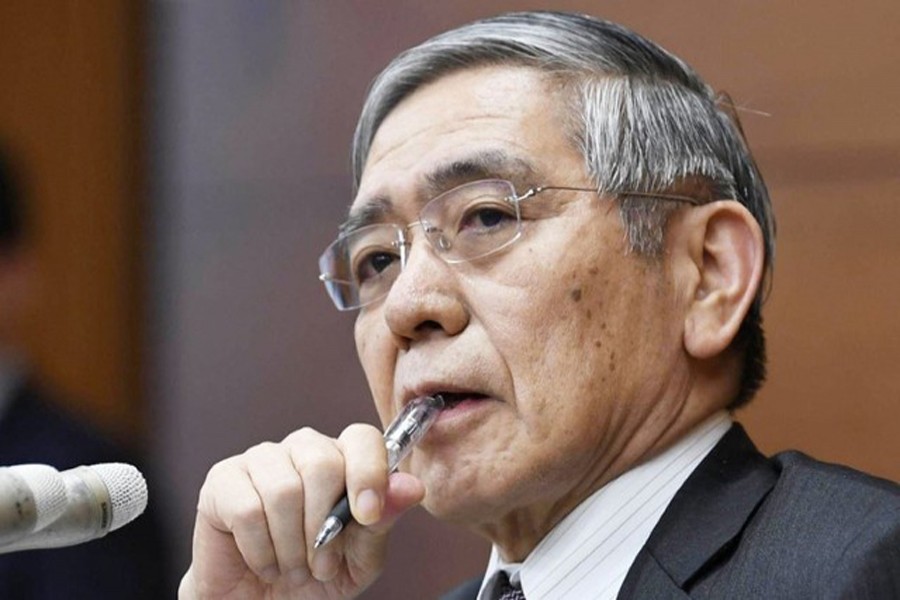Bank of Japan Governor Haruhiko Kuroda said on Thursday central banks must carefully evaluate the impact of unconventional monetary policy steps, as their benefits and side-effects could differ from those brought about by conventional policy.
Kuroda also warned that rapidly ageing societies could make the job of central banking more difficult, as falling fund demand could keep interest rates low and prompt financial institutions to boost risky investments.
“As a low interest rate environment persists and credit demands become stagnant amid a declining population, banks might accelerate their search-for-yield activities such as expanding their exposure to overseas assets and increasing loans and investments to firms with higher credit risks,” he said.
“If that were the case, the entire financial system could become less stable,” Kuroda said in a seminar that Japan hosted as chair of this year’s G20 meetings.
Japan is among the world’s fastest ageing countries, stoking concerns a shrinking working-age population will hurt potential growth and force the central bank to keep interest rates lower than it wants to stimulate the economy.
Kuroda said the BOJ has invented “various unconventional monetary policy measures” after pushing interest rates to zero, such as negative interest rates and purchases of risky assets.
“We now know we have the tools to stimulate the economy even when we face the zero lower bound problem,” he said.
“However, we need to carefully monitor and evaluate the effects of these unconventional measures on economic developments, prices and financial conditions since the transmission mechanisms, benefits, and side-effects of these measures could be different from those of conventional monetary policy measures,” Kuroda said.
The BOJ chief rebuffed the idea of adopting a higher inflation target, which some academics have proposed as a means of providing central banks with enough buffers to counter another economic crisis, Reuters reported.
“No central bank has moved away from a 2 percent inflation target, which is a global standard,” Kuroda said.
“It has been pointed out that one reason for this is the possibility that, since fluctuations in the inflation rate become more pronounced as inflation becomes higher, households and firms would find it difficult to make economic decisions.”
As chair of this year’s Group of 20 major economies’ meetings, Japan hopes to promote debate on how demographic changes could affect growth and policy-making.


